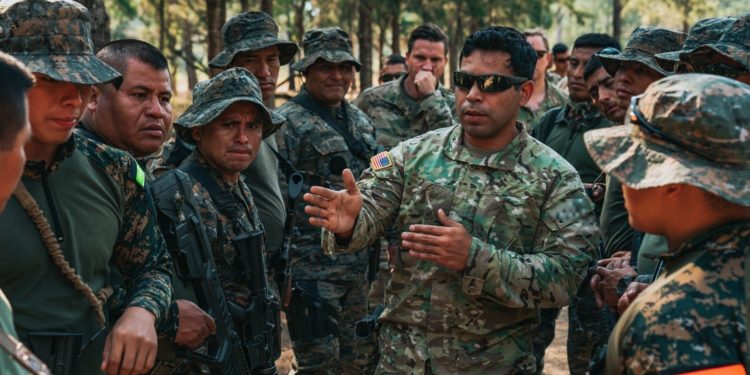Every Green Beret candidate has to pass language school at some point — either before or after graduation, depending on the year — and each Special Forces group has a language lab where Green Berets can hone their language skills.
In addition, Special Forces operators are encouraged to take college or online courses, as their language proficiency levels are re-tested every year.
“The command has set up not only classroom training for [Special Forces] guys but Green Berets can sign up for the Special Operations Forces Tele-Training System, which allows them to either sign up for a dedicated course or to simply connect with a tutor who can work with them during free hours to improve their language capability,” Steve Balestrieri, a retired Green Beret warrant officer, told Insider.
The U.S. military’s emphasis on fighting with or through partner forces over the last two decades has prompted other special operations units to pursue foreign language skills in order to be more competitive for missions and, ultimately, to secure greater budgets.
Navy SEALs and Marine Raiders in particular are sending more special operators to language school.
Communicating Your Way to Success
Conventional troops almost always are accompanied by at least one interpreter, so it’s special operators that rely on and use foreign languages the most.
When U.S. special operations units are trying to build rapport with a partner force, the best way to do it is through a shared language. It’s an elemental part of human relationships, a great way to understand the culture of a country or region, and it shows that American commandos take the locals seriously.
The U.S. military uses the Defense Language Proficiency Test (DLPT) to measure language skill with four levels — 0 to 3. The amount of training depends on the language, and it can take a few months to more than a year.
Achieving fluency or native proficiency in a foreign language, especially those the Pentagon deems critical, is no joke. So when a Green Beret from Oregon is in Afghanistan and can communicate in Pashto with the local commandos he is advising, he has already done a lot to earn their trust.
“Language training is extremely important for Special Forces teams as a way to make rapport with local partner forces,” Balestrieri said. “Because of the war on terror, a lot of our language capability has atrophied and has to be stressed moving forward.”
Beyond trust-building, language skills ease every interaction U.S. troops have with local forces, from teaching them how to clear rooms and leading them into combat to consoling them after setbacks.
“In gray-zone conflict, the ability to speak the language and know the culture of the target audience will be a huge advantage for SF [Special Forces] troops, which has been their bread and butter,” Balestrieri added.
During the ’80s and ’90s, the language proficiency of members of 7th Special Forces Group “was a huge part of the success the group had in several different areas,” Balestrieri said, referring to a unit involved in training Central American militaries.
When it comes to language capabilities, the U.S. military has a strategic advantage over most other militaries because of the U.S.’s diverse population.
American troops with native or near-native language capabilities and cultural awareness learned through family ties are an asset in a special operations environment, where commandos have to often work with a partner force.
So the pool of recruits exists, and it’s up to the Pentagon to ensure that it attracts candidates who can qualify for and complete a special operations selection and training program.
This article was written by Stavros Atlamazoglou and originally published on the Insider.










COMMENTS